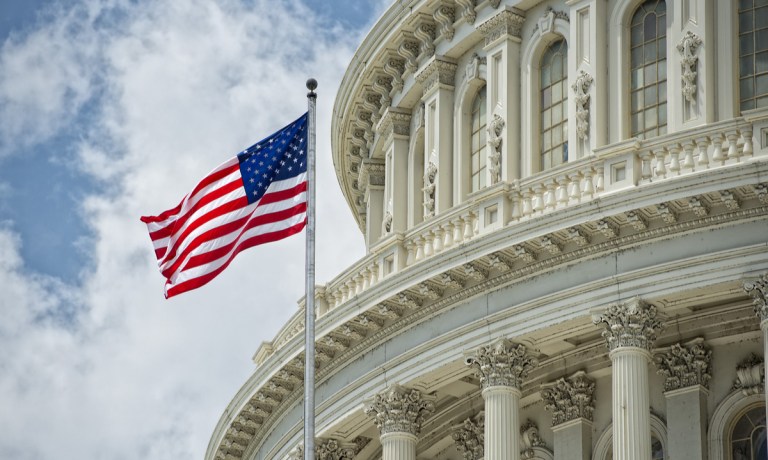Senators Skewer Failed Bank Execs for ‘Stupid Bets,’ Selfish Management

The failures of Silicon Valley Bank (SVB) and Signature Bank were unlike any in history.
U.S. lawmakers are hoping to get to the bottom of just why they were, and how the catastrophes could have been prevented.
Executives from the collapsed lenders were in the hot seat Tuesday (May 16) as senators grilled them over their role leading up to and around the failures that kickstarted March’s mini-crisis, an ongoing situation that the broader banking system is still dealing with.
During the Senate hearing by the Committee on Banking, Housing and Urban Affairs, entitled “Examining the Failures of Silicon Valley Bank and Signature Bank,” the committee chair, Sen. Sherrod Brown, D-Ohio, skewered the witnesses Gregory Becker, former CEO of SVB; Scott Shay, former chairman and co-founder, Signature Bank; and Eric Howell, former president, Signature Bank.
“We know your banks were fatally mismanaged. The next obvious question is why? Why did you let things get this bad?” Brown said.
Becker blamed rate hikes by the Federal Reserve and “rumors and misconceptions” for his firm’s demise — but lawmakers were not having it.
“Importantly, throughout 2020 until late 2021, the messaging from the Federal Reserve was that interest rates would remain low and that the inflation that was starting to bubble up would only be ‘transitory,’” Becker said.
“You made a really stupid bet that went bad,” replied Sen. John Kennedy, R-La.
“If you’d [hedged], that would have cut into your profits, wouldn’t it? If you’d made less money, that would have affected your bonus, wouldn’t it?” Kennedy added.
Read more: Regulators Blame Signature for Own Failure and Themselves for SVB’s
A lack of culpability
It took SVB’s Becker nearly two hours into the at-times heated hearing to admit responsibility for his bank’s collapse.
“SVB was an anomaly, and your lack of judgment, Mr. Becker, shows that you should not have been running the bank,” added Sen. Tim Scott, R-S.C., the top Republican on the Senate Banking Committee.
Signature Bank’s own one-time leaders went so far as to tell the assembled lawmakers that the Federal Deposit Insurance Corp. (FDIC) didn’t need to take their institution into receivership, and that mismanagement played no role in Signature’s failure.
“Although I believed that the bank was in a strong position to weather the storm, regulators evidently saw things differently,” Shay said.
“The root cause of SBNY’s [Signature Bank’s] failure was poor management,” the FDIC wrote in an April 28 post-mortem of the bank.
Read more: Regulators Tell Senate Lawmakers SVB Bank Leaders Ignored Warnings
All three witnesses repeatedly emphasized their institutions’ impact on small businesses that form “the backbone of the U.S. economy,” while skirting the impact that may result from the failure of their businesses.
“You never slowed down to make sure you were doing basic bank management,” Brown said, adding that the executives “put short-term profits above everything else. … You were paying out bonuses until literally hours before regulators seized your assets.
“Only in corporate boardrooms can you run your business into the ground, take the whole economy along with you and come out ahead,” Brown emphasized.
It was the first time SVB’s former CEO has appeared in public since his bank’s collapse.
See also: Fed Aims to Strengthen Supervision After Review of Bank Failure
The failed executive declined to answer questions around his sale of company stock during the leadup to the collapse, which netted him millions.
Sen. Bob Menendez, D-N.J., suggested the Becker was trading on non-public information given that he was aware of the over 30 warnings issued to SVB before its failure by the Fed, while Sen. J.D. Vance, R-Ohio, repeatedly pressed Becker on whether those trades were “ethical.”
“How much of the $40 million that you earned from loading up SVB with risk are you planning to return to the FDIC?” Sen. Elizabeth Warren, D-Mass., asked Becker.
In all three cases, Becker demurred. As reported by PYMNTS, both the U.S. Department of Justice (DOJ) and the Securities and Exchange Commission (SEC) are investigating the stock sales.
Related hearings on the bank failures are set for Wednesday (May 17) and Thursday (May 18).
As PYMNTS reported last month, the FDIC, New York State Department of Financial Services (NYDFS), and Federal Reserve have all made recommendations suggesting that the banking industry needs stricter policing across multiple fronts in order to prevent future failures.